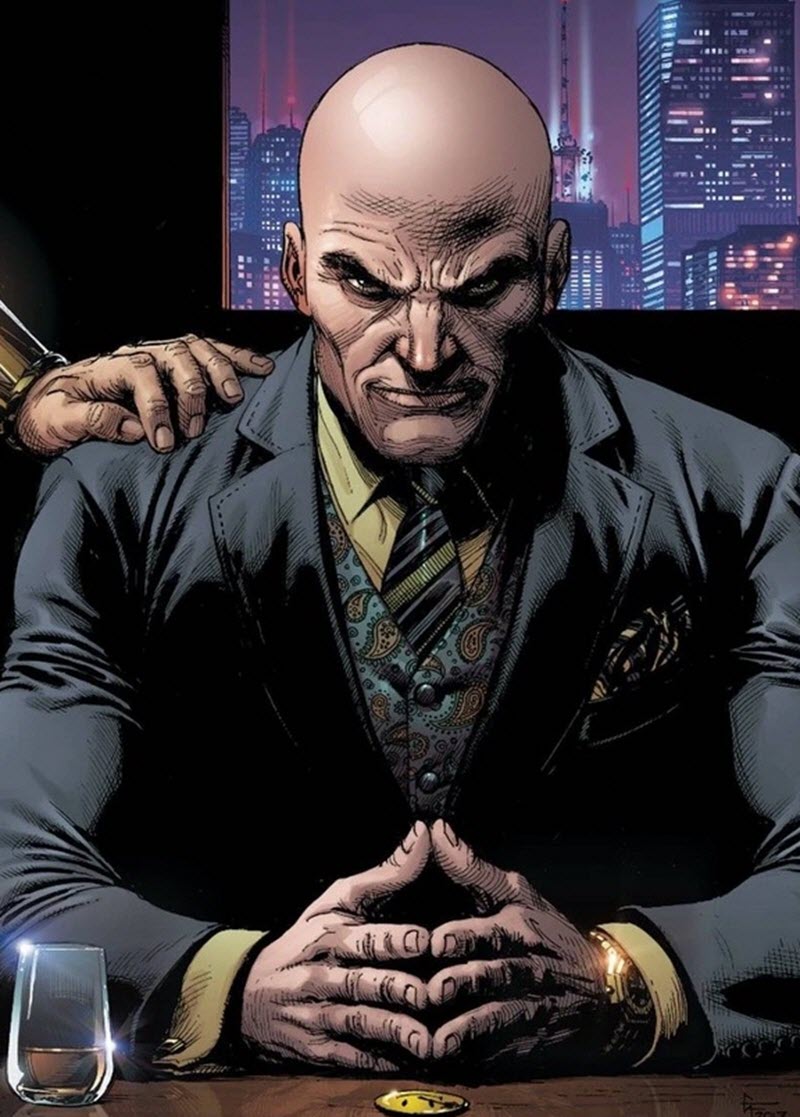Contents
Lex Luthor, a name that resonates with both comic book enthusiasts and casual superhero moviegoers, is a character that has grown from a pulp villain into one of the most complex and intriguing characters in the DC Comics universe. This article delves into the evolution, character traits, and cultural impact of Lex Luthor.

Origins and Evolution
The Golden Age
Lex Luthor debuted in Action Comics #23 in April 1940 as an arch-nemesis to Superman. Initially, Luthor was portrayed as a diabolical genius with a penchant for science and technology, using his inventions for evil.
The Silver Age: Reinvention
In the Silver Age of Comics, Luthor underwent significant changes. He was given a backstory where he grew up in Smallville, the same town as Superman. During this period, Luthor’s character was fleshed out, and his animosity towards Superman was attributed to a series of events from their shared past.
Modern Age: The Business Tycoon
In the 1980s, with the launch of “The Man of Steel” comic series, Luthor was reinvented once more, this time as a corrupt business mogul. He was depicted as the wealthy and powerful CEO of LexCorp, using his resources to further his ambitions and challenge Superman.
Character Traits and Motivations
Genius-Level Intellect
One of Luthor’s defining characteristics is his genius-level intellect. His expertise ranges from science and technology to strategy and business. He is often depicted as a master inventor, creating gadgets and machines rivalling the most advanced alien technologies.
Obsession with Superman
Luthor’s animosity towards Superman is a central theme in their rivalry. His disdain for the Man of Steel stems from various reasons, including jealousy of Superman’s powers, resentment for overshadowing his genius, and a fundamental philosophical disagreement over what it means to be a hero.
Desire for Power
A relentless desire for power and control characterizes Luthor. He believes in humanity’s potential and often argues that Superman’s presence prevents humans from reaching their true potential. Luthor sees himself as the savior who will lead mankind to greatness.
Cultural Impact and Portrayal in Other Media
Television and Film Adaptations
Lex Luthor has been a staple in adapting DC Comics to television and film. Actors such as Gene Hackman, Kevin Spacey, and Jesse Eisenberg have portrayed him in Superman films. The character has appeared on television in various animated series and live-action shows like “Smallville,” where Michael Rosenbaum’s portrayal is especially praised.
Symbolism and Social Commentary
Lex Luthor’s character often serves as a means for social commentary. His evolution into a corporate tycoon in the 1980s paralleled the rise of corporate power in America. Luthor has been used to explore themes such as the corrupting nature of unchecked power and the ethical responsibilities of science and technology.
Legacy
Lex Luthor’s complexity makes him more than just a villain; he reflects the dark side of ambition and the human potential for greatness gone awry. His multifaceted character has endured for decades and continues to captivate audiences. Through his rivalry with Superman, Lex Luthor challenges the concept of heroism and asks profound questions about humanity’s place in a world of gods and monsters.